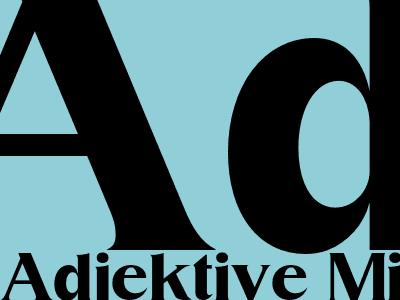Adjectives in German: A Comprehensive Guide to Adjectives With J
What are adjectives?
Adjectives are words that describe nouns. They provide more information about the size, shape, color, age, or quality of a noun, like "beautiful," "tall," or "old." German adjectives are just as important as they are in other languages because they help us understand the characteristics of the nouns they modify.
Using adjectives with nouns
In German, adjectives typically come before the noun they modify, similar to English. For example, instead of saying "The house is big," you would say "Das große Haus" (literally "The big house"). However, there are some exceptions to this rule, such as when the adjective is used in a predicate position (after the verb).
Types of adjectives
There are many types of adjectives, and each one is used in a specific way. Some common types of adjectives include: Descriptive adjectives: These adjectives describe the qualities or characteristics of a noun, like "beautiful," "tall," or "old." Demonstrative adjectives: These adjectives point out a specific noun, like "this," "that," or "these." Possessive adjectives: These adjectives show ownership of a noun, like "my," "your," or "his." Quantitative adjectives: These adjectives describe the quantity of a noun, like "many," "few," or "some." Interrogative adjectives: These adjectives are used to ask questions about a noun, like "which," "what," or "whose."
Adjectives with J in German
There are many adjectives in German that start with the letter J. Here are a few examples:
- jung (young)
- jährig (year-old)
- jährlich (annual)
- jeder (each)
- jemand (someone)
- jemals (ever)
- jemand (someone)
- jemals (ever)
- jetzig (current)
- jovial (jovial)
- jubelnd (jubilant)
- jüdisch (Jewish)
These are just a few examples of adjectives that start with J in German. There are many more, and the best way to learn them is to immerse yourself in the language and practice using them in context.
Conclusion
Adjectives are an essential part of the German language. They provide more information about the nouns they modify, and they help us to create more descriptive and vivid sentences. By learning the different types of adjectives and how to use them correctly, you can improve your German communication skills and become more confident in your ability to express yourself in German.

Comments